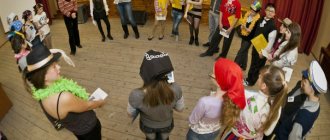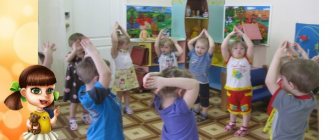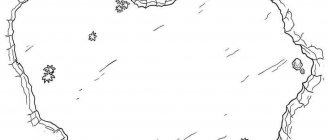Why do you need an educational webquest?
- Developing interest in studying the subject.
- Identifying students who are interested in the subject.
- Improving results through a competitive format.
- Developing the ability to work and make decisions in a team.
- Development of strong-willed and leadership qualities of students.
- Obtaining and improving skills in using educational applications and services.
- Encouraging the use of electronic devices by schoolchildren for educational purposes.
Main stages of the educational quest
- Development of the quest, preparation of materials.
- Introduction to the plot, formation of teams, distribution of roles.
- Completing tasks, solving problems, passing stages.
- Summing up, awarding the winners.
- Analysis of results, subsequent pedagogical actions depending on the goal and result.
Quest lesson: equipment and online resources
- Computer/laptop + tablet/smartphone
- Internet connection
- Quizizz (website and application for working with quizzes)
- Google Forms (a universal service for creating tests, surveys, etc.)
- Google Sites (website builder)
- QR code generator (for example, QRCoder.ru)
- Application for reading QR codes (for example, “QR-reader” or standard “Camera”)
What kinds of quests are there?
A quest is a team game, during which each group completes some tasks, receiving for this elements of the answer to some common question (keys).
Based on these clues, the team must provide an answer or find something. Those who do it faster than others win. An example of a quest is the once popular television game “Fort Boyard”: in order to obtain keys, teams performed tasks of a sporting nature that required dexterity, strength or fearlessness. The prize for each completed task was a real key, of which a certain number had to be collected. Players then completed more tasks to get clues and guess the word that would qualify them for a prize.
That is, tasks can be both knowledge and ingenuity, dexterity, the ability to overcome oneself, one’s fears. There may be different numbers of them. But the principle must be followed: completing tasks - collecting keys - solving a riddle - a prize.
Lesson-quest. What is it and why you should try it
Many teachers are looking for new ways to engage children, get them interested in learning, and are trying new formats. Our blogger, author of Mousematics Zhenya Katz, talks about just one of these formats - a quest lesson that will help train learning skills, interaction, and even emotional intelligence.
Useful Mela newsletter twice a week: Tuesday and Friday
SUBSCRIBE
A quest lesson is an unusual form of conducting a lesson. Such a lesson helps the teacher not only test the students’ knowledge on a certain topic, but also see to what extent the students are able to complete their own tasks independently.
You can choose what topic to conduct a quest lesson on (you can call it a search lesson, a finder lesson, if you don’t like the word “quest”).
We do not pronounce the name “quest lesson” to children, but tell the plot of the story and invite them to join the game, the search. And we use the word “quest lesson” as a designation for this form of work.
In the quest format, we can conduct a test and test students’ knowledge on a topic that we have already “passed.”
What is special about this form of work?
The quest lesson takes a long time to prepare. Even if you make your own quests, it can be quite difficult to come up with them and it is not always easy to choose a quest that will suit your students’ level. If you guessed the difficulty level, the quest will go off with a bang. However, if you are, as they say, “under the age”, and the task turns out to be too difficult for many, then the children will find it difficult to complete the task, they will be distracted a lot, get tired quickly, and no one will enjoy the game.
It’s better to start getting acquainted with quests with obviously simple tasks, so that everyone can easily find 2-3 solutions. After this, it will be easier for you to offer students a more difficult quest another time.
Adults often think that tasks like “mittens” will be too simple for first-graders. However, practice shows that the quest lesson itself is a rather complex game, and each of the children must understand and remember very complex instructions.
Sometimes it is difficult for a teacher to clearly formulate a task and explain it to students
When you have printed everything out, prepared it, and hung it up, then the most difficult thing remains - starting the game. You need to explain the task to everyone at the same time, give everyone their sheet or card with the task, and ask again who has already understood what to do and is ready to go on their quest.
It is better to accompany the first two or three students at first, make sure that they really understand the task, then send them to look further, and at this time give tasks to other children.
Ideally, it would be good to see the first 2-3 correct solutions for each student, and only after that send him to look for the remaining solutions.
When you conduct the first quest lesson in a group that has not encountered this type of work before, then to start you should invite 2-3 more assistants for the first 10 minutes of the lesson so that they can help “launch” each student on the search. But if the group is already familiar with this form of work, you can give them instructions - and half the class will immediately go to work, while you help those who listened or did not understand something.
Game conditions options
Thus, a prerequisite is to find the keys (figuratively or literally) and solve the overall problem of the game. Everything else can be changed.
- Assignments can be in one subject (on the same topic) or on different ones.
- These can be questions or practical tasks (or even better, alternate between them).
- Players may or may not know in advance what area of knowledge the question will be from.
- Players must complete a certain number of challenges (regardless of the outcome) or can complete the challenges by obtaining a certain number of keys.
- Keys are given only for successfully solving the task or in any case (if the task is not completed, a key and a penalty point are given, the number of penalties is taken into account when determining the winner).
Of course, the game format allows you to make any task more fun. But still, I think it’s better to choose the most entertaining tasks that are more appropriate not for the lesson, but for an extracurricular event.
What age is this quest scenario suitable for?
I specifically made it so that 11 out of 13 tasks could be changed. They are in no way connected with each other, so feel free to leave my legend and the last two tasks with a letter and a compass, and select everything else taking into account the age of the children.
Collect easier puzzles, and already 3rd grade children will play with pleasure. Complicate the tasks while maintaining the mechanics of the game, and can be used in grades 7-9.
This option, in my opinion, is suitable for children in grades 4-6.
Quests to get keys
These are a variety of exciting tasks on subjects. But, of course, for the game to be a game, they need to be brought closer to the theme of the quest.
If the quest is organized by teachers of the same subject, you need to diversify the tasks.
For example, like this (option for a game organized by Russian language teachers; theme “Search for the missing expedition”):
- read a “water damaged” letter from the sea;
- write a poem;
- correct errors in the petition to the Admiralty to outfit the ship to search for those in distress;
- make a list of equipment (work on vocabulary or spelling: take only those cards on which the word is written without errors);
- solve the riddles of the native leader, etc.
But more often the quest is organized by a company of like-minded people from different specialties, so the tasks come from different areas of knowledge.
Tasks can be prepared in quantities corresponding to the number of teams, or there may be one that is offered to all teams.
If there are a lot of tasks, you can lay them out like tickets for an exam (or offer to draw a piece of paper with a question from a hat (lottery drum, jar with spiders, etc.)). Or the specialist located at this point can ask questions to the teams at his own discretion.
The content of tasks can also be different: “scientific”, “logical”, creative, general physical training, and observation. If guys from two parallels are playing, and not in mixed teams, you can prepare multi-level tasks. The same, naturally, applies to schools with inclusion, in which one of the teams may represent a correctional class.
It can be an interesting game with mixed teams, that is, those that include students from different classes, different parallels, students from regular and correctional classes.
Where can the game be played?
The script is written for conducting a quest in a classroom or in a library reading room.
All apartment and country quests use household items to provide tasks and clues. That is why the ideas from those scripts of mine can only be partially used.
Agree, it’s hard to imagine how 30 children will start rummaging through the shelves of the school closet with notebooks and manuals, rummaging through the drawers of the teacher’s desk and lifting all the flower pots on the windowsills in search of a clue. The same can be said about a library or a cafe room.
I thought about ways to get clues and the ending with finding gifts without searching the premises.
General task
During the game, teams collect keys to solve the main problem. What could it be?
- Most often this is a hidden word; For each completed task, teams receive letters, and then must form this word from the letters received.
- Teams can receive coins, which they can then use to buy a key and open a chest with a prize.
- For completing tasks, you can give out elements of a map cut like a puzzle (photo cards, pictures...).
- You can give weights (you need to gain a certain weight as a result).
- These can be association objects designed to help solve the code word.
- You can fight for parts that will eventually be used to assemble something, ingredients for a dish, tools and materials for crafts...
The basic principle is one of two. Either it is necessary to collect a complete set of keys (let's say 5; in this case, it is more rational to give the key in any case, regardless of whether the team completed the task correctly, just impose fines if necessary), or you can get by with an incomplete set (for example, you can try the word guess from the letters that you managed to collect).
How to organize space
The class should be divided into 4-5 teams of 4-6 children. Move the tables apart so that you have several separate “headquarters”. Each team will have a relatively isolated place to discuss quest assignments. If you turn on quiet background music, it will be difficult to eavesdrop on each other.
If there are 20 people in a class, there will be 4 teams of 5 participants. 24 people - 4 teams of 6 participants. 30 people - 5 teams of 6 participants.
We also need one table for the presenter. If the quest is led by a teacher, you can use the teacher's table. There’s no need to hide anything there either, just give out a new task or hints, and the children themselves will come “to the post office.”
Let's welcome the Year of the Tiger 2022!
A selection of ideas for the Year of the Tiger is ready!
Look at interesting competitions in other scenarios: “Year of the Ox”, “Year of the Rat”, “Year of the Pig”, “Year of the Rooster”, Year of the Dog, “Year of the Horse”, “Year of the Monkey” (this is my favorite selection), “Year of the Goat” . Here is the script for the New Year's quest for children 4-8 years old "Santa Claus's Magic Watch" and separate children's New Year's competitions!
Other free scripts
The quest can be organized on summer birthdays, for the New Year, for a general holiday for boys and girls on March 8 and February 23, to celebrate the end of a quarter or school year, to please children at a summer camp, to organize an entertaining event in the library (Robinsonade).
In this game, you can change the tasks to your own or take ideas from my other quests.
Here are free scenarios and individual tasks. Crazy tea party in class. Games and competitions for various occasions.
If everything is dedicated to the New Year, add before or after the quest something suitable from my selections of table games:










